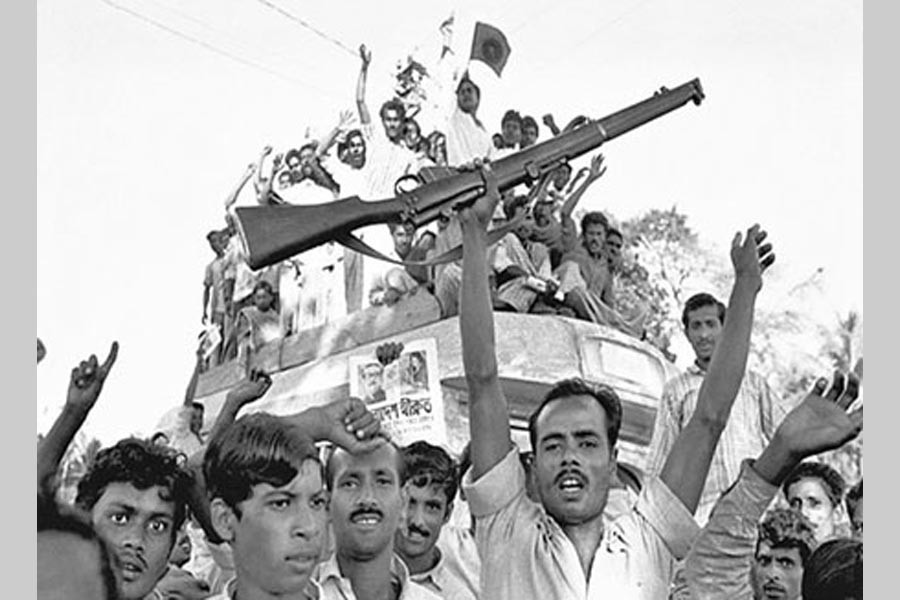By noon on this day in 1971, more than two thirds of Bangladesh had already begun basking in the ethereal glow of freedom. Different radios were broadcasting the frenziedly euphoric revelry of the people just liberated that morning or in the last few days. But in the country's capital, the atmosphere was filled with myriad types of premonitions and fears. The fraught mood prevailed despite the booms of field guns fired by the Joint Command comprising the Freedom Fighters and Indian Army. They had encircled Dhaka from all sides. Their storming of the capital under the siege of the Pakistan occupation forces was only a matter of time. The residents of Dhaka, especially those in the greater Dhanmondi and Tejgaon, could not sleep in the last few nights. With no short-haul fighter aircraft remaining unscathed from the Joint Command air-strikes, the enemy forces had turned to a revolting ploy. They began using small Cessna planes and helicopters to drop bombs on the city people. Since the first night of the cowardly and abhorrent air attacks, the city residents had started counting time for their moments of doom. It could descend on them anytime between midnight and the early dawn.
In fact, with the air rife with apprehensions of the morally shattered occupation forces preparing to enforce a scorched-earth policy, many Dhakaites the night before December 16 had taken it for their last in life. To their great disbelief, the night passed peacefully, with no howls of death coming from above. The radios --- Swadhin Bangla Betar Kendra, Akashbani, BBC and Voice of America, were busy broadcasting on-the-spot reports from the liberated areas. As the sunny winter morning began rolling into noon, the scenario in Dhaka also wore a radically changed look. The triumphant Freedom Fighters had started entering Dhaka from their suburban positions. They streamed into Dhaka on trucks, jeeps and other vehicles, guns slung across their shoulders. Their cry of victory comprised only two words: 'Joi Bangla'. They were followed by the rows of convoys manned by the Indian allied forces. In no time, the great news started making rounds among the people that the Pakistan occupation army was going to formally surrender to the Joint Command of the Freedom Fighters and Indian Army at the then Race Course ground in the afternoon. The ceremony was held amid spontaneous jubilations and victory slogans chanted by those present at the scene.
After nine long months of the Liberation War and a barbaric genocide let loose on the Bengalees in the then East Pakistan, Bangladesh tasted freedom. It was oppression by the West Pakistani rulers for 24 years that sparked the war. Few countries in history have attained freedom in an armed struggle lasting for only nine months. In the later times, a school of academics and politicians were of the view that Bangladesh's was a 'premature birth'. Had it continued for a longer time, like that fought by the North Vietnamese from 1955 to 1975, and also the others, Bangladesh would have been free of many unwarranted developments that took place in the independent country.
They cite a common logic in support of their premise. As they view it, after a prolonged war, the people of the country could have claimed themselves to be battle-hardened. It would have naturally resulted in an unalloyed and strong love for the motherland. The other school presents a different view. According to them, given the geopolitical realities of the 1970s and the world's bipolar nature, coupled with the Cold War, the Bangladesh liberation struggle couldn't have been allowed to linger. In that case, undesirable turns in the Sub-continental politics might have spoilt the very objective of the war. The truth is victory has finally been achieved on a massive price --- martyrdom of three million people.


